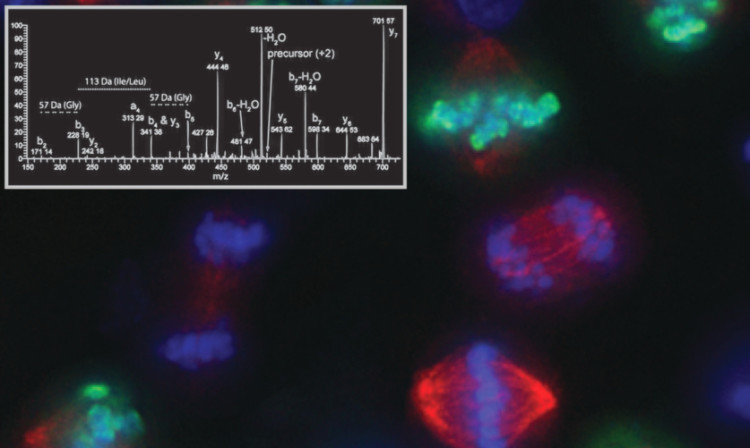Researchers at Dundee University have captured the most complete picture yet of gene expression in the cancer cell cycle.
Their work offers hope for the development of new drugs to tackle cancer and other diseases.
Uncontrolled cell growth and division is a hallmark of cancer but the research project led by Dundee University has provided the most complete description to date of the gene activity when human cells divide.
Researchers have gathered data detailing the behaviour of protein molecules encoded by more than 6,000 genes in cancer cells, as they move through the cell cycle.
Advances in technology and data analysis have allowed the team to study how genes work over time in cancer cells, as opposed to capturing a snapshot of activity a leap forward they describe as akin to “jumping from still photography to video”.
The results from the Dundee team, carried out in collaboration with the Wellcome Trust Sanger Institute in Cambridge and North Carolina University, have been published in the international journal eLIFE.
Cells are extremely complex environments at any one time, thousands of different genes are active as molecular templates to produce messenger RNA (mRNA) molecules, which themselves are templates used to produce proteins.
Not all genes are active at all times inside all cells. As cells grow and divide, genes are switched on and off on a regular basis.
“We have been able to produce a detailed analysis of protein activity in human cancer cells that exceeds what was previously possible,” said the project leader Professor Angus Lamond, of the College of Life Sciences at Dundee.
“It is essential to study how gene activity varies over time if we are to understand the complex processes in cancer cells, as the dynamic is changing all the time.
“Previously it has been possible to capture a time-averaged snapshot of this activity, but what we can now do is give a much fuller picture.”
